Most people go through a career change in their life. So, you’re not alone if you start your career at Point A, go to Point B, and end up all the way down the line at Point Z.
And though career changes are common and even necessary at times, they often seem overwhelming. For most, it’s like starting over again.
But, the truth is, you’re not starting from scratch. Instead, you’re simply using your transferable skills to make a pivot. That is, you’re taking what you already know and applying those skills to a new job title or industry. We can make these seamless career transitions thanks to our transferable skills.
It’s important you know what transferable skills are and which transferable skills you have. That way, if you become an unemployed remote job seeker or find yourself unfulfilled, you can highlight these skills to make a purposeful change.
Settle in. This guide will define what transferable skills are, how to identify yours, ways to highlight them, and best practices for using them to make strategic career moves.
What are transferable skills?
Transferable skills are portable skills. You can take them with you from one job to the next. Generally speaking, one transferable skill can be applied to multiple industries or job titles. Your transferable skills are likely valuable to any employer. For example, strong written communication skills are universally helpful in pretty much every remote job. Period. In fact, it’s one of the skills remote companies look for in (almost) all of their hires.
Where do transferable skills come from?
Transferable skills can be both hard skills and soft skills. As a reminder, hard skills are learned skills. These include languages spoken, software you can use, and tons of other technical abilities.
On the other hand, soft skills are our unique traits and interpersonal abilities we use at work. I often tell my clients that your hard skills will get you a job interview, but your soft skills will get you a job offer.
Remember, your transferable skills are not restricted to your most recent role. You can pull transferable skills from past positions, volunteer roles, internships, hobbies, side hustles, or virtually any activity you engage in.
Take it from Janet, a career coaching client of mine. Allow me to share her story.
Transferable skill inspiration story
Janet was a longtime teacher. In her spare time, she enjoys crafting and creating. She often spends time on Pinterest getting inspired by all the visuals. On the side, Janet has a small Etsy shop she uses to sell Cricut templates to fellow teachers. Janet always believed teaching was her calling. But, when her district shifted to online learning, Janet soon found she enjoyed teaching less and less.
However, online teaching gave her more opportunity to create content for her virtual students. Janet was in love! She already enjoyed making Cricut templates, but now she was creating more digital content than ever before. Soon, Janet contemplated a career change. But, she felt stuck as an educator.
That’s when Janet came to me seeking career advice. She loved working remotely, but wasn’t in love with teaching anymore. But she worried, “I’ve only ever been a teacher. Who will hire me for a non-teaching role?”

Don’t Get Caught Up by Job Titles
I reminded Janet that she is more than her job title. Janet communicates with parents, plans lessons, creates educational content, designs workbooks, makes interactive worksheets, and can quickly create learning materials using design platforms like Canva and Adobe InDesign. Clearly, she was more than “just a teacher.”
Together, Janet and I used my three-step system to identify her career ideals. From there, it was pretty easy to see that Janet was a creator at heart. Sure, her job titles were education based, but her transferable skills were definitely marketing and design forward.
Ultimately, Janet decided to make a career change that put her transferable skills to work. Soon, she was interviewing for editorial and marketing positions within the education industry — somewhere she wanted to stay.
In about six months, Janet ended up landing a remote curriculum creation role for an online K-12 school. Now, her entire day is spent creating instead of teaching. She credits her transferable skills for allowing her to effortlessly make the change!
What is not a transferable skill?
Now that you have a real life example of what transferable skills are (thank you, Janet!), let’s look at what they are not. Transferable skills are not skills that are so specific that they really only apply to a certain role.
For example, if you’re a phlebotomist, drawing blood for medical tests is an essential skill that really won’t transfer elsewhere. However, that doesn’t mean a phlebotomist has zero transferable skills. Likely, a phlebotomist has great customer service skills, an ability to place people at ease, and time management capabilities — all highly desirable transferable skills for just about any new remote role or industry.
When is it important to know your transferable skills?
First and foremost, transferable skills are most helpful when you want to change careers or switch to a different industry. But, they’re also important when you’re unemployed, underemployed, or feeling stuck in your current role.
Recent college graduates can also use transferable skills from internships or life experience to help them get established in their chosen industry.
Similarly, your transferable skills help you get ahead at your current company or give you opportunities to work on new and interesting projects that otherwise would pass you by.
So, how do I figure out what my transferable skills are?
Your transferable skills are constantly changing. And, they will be different depending on where you want to go. Let’s revisit Janet’s scenario for a minute. Because she wanted to move to a content creation role, Janet focused on design and curriculum development transferable skills to navigate her career change.
However, if Janet wanted to move to a finance role, her transferable skills would have focused more on classroom budgeting, supplies inventory management, and fundraising activities she did at her school.
You too should identify your transferable skills based on where you want to go and the skills needed to be successful in that role. A great place to start is with a job description.
For example, let’s say you’re a sales representative who wants to move into project management. You would find a remote project manager listing and carefully read the job description. Here’s a real example with relevant sales-to-project management transferable skills highlighted:
Now, you realize that your sales background has prepared you to be an organized, multi-tasking, deadline-driven, cost-conscious project manager with an ability to communicate effectively with clients. These are all skills you routinely did in sales and can take with you to project management. In other words, these are your relevant transferable skills.
What if I don’t know what I want to do?
When you don’t quite know your ideal role or where you want to end up, think about skills you excel at. Reflect on previous roles, hobbies, or volunteer experiences. Which tasks did you enjoy the most? Are there any things you do exceptionally well and often get complimented for? Chances are, these are skills you will want to regularly use at work. Similarly, these are transferable skills you can highlight to help you find a remote job you’ll love.
You can also explore in-demand remote jobs to see if anything piques your interest. If so, great! Further research that role to see what skills are needed to get hired.
You can also work with a career coach to help you identify and highlight your transferable skills as they relate to your ideal remote role.
How do I highlight my transferable skills during my remote job search?
Change Your Resume Format
First up, it’s time to change up your resume’s format. Get rid of the objective statement and opt for a Professional Summary instead. Use this space to connect the dots from previous roles to the new job you want to pivot to.
Also, be sure to include a Skills Summary section. Here, you will specifically state your transferable skills that directly relate to the job you’re applying for.
In my experience as a career coach and resume writer, here’s an example of the BEST resume for career changers:
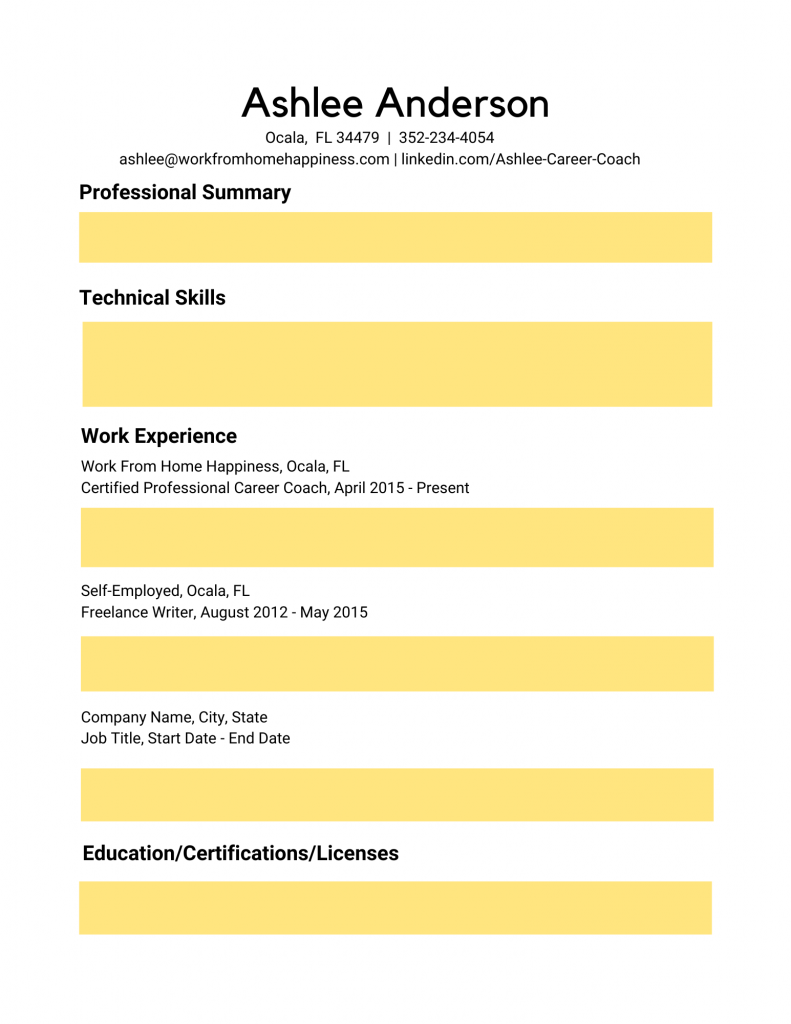
Update Your Resume Every Time
Next up, always optimize your resume. You have to do this for every single position you apply for. Remember that technical skills section I just talked about? You’ll specifically pull transferable skills keywords directly from the job ad and place them into your skills section. This is known as keyword optimizing your resume.
Since hiring is automated now, more than ever, you stand a better chance of getting past Applicant Tracking System (ATS) and in front of an actual human that makes hiring decisions. Remember, ATS is the special software companies use to make hiring simpler. The ATS scans your resume to find relevant (transferable) skills to determine whether you’re a good fit for a role.
When you have these skills in your resume, you get placed in the ‘yes’ pile. If you don’t have them, your resume is rejected or, worse yet, placed in dreaded resume limbo where you never hear anything back one way or the other.
Tell Your Career Story on LinkedIn
Your LinkedIn profile gives you a chance to tell your unique career story. Like the Professional Profile in your resume, use the About Section of your LinkedIn Profile to tell recruiters where you started, where you are, and where you’re going. This helps them see you in your desired role, even if you haven’t held that specific job title before.
You need to think about keywords in your LinkedIn profile too. Use your headline to insert the job title you want to land. This helps you rank better in searches! So, when a recruiter heads over to LinkedIn to find [insert your specific remote job title here] you’re more likely to show up in their search results if you have the job title in your headline.
Another thing, ask for endorsements for the transferable skills you need to change careers. LinkedIn Endorsements work as social proof to hiring managers that you do, in fact, have the necessary skills to seamlessly change careers.
Use your Cover Letter to Explain Your Career Change
Today, cover letters aren’t as common as they used to be. But, if you have the opportunity to upload a cover letter to an online job application, I highly recommend you do it!
When you change careers, you can use your cover letter to explain your career change and highlight the transferable skills you have.
For example, if Janet didn’t explain her desire to change from educator to content creator, a recruiter would have been confused by her application. Instead, Janet clearly explained that both in her personal life and professional career, she thrived at content creation and was ready to turn it into her full-time role. Now, recruiters reading her resume read it from the right angle instead of wondering why she’s applying for a seemingly unrelated role.
Use Transferable Skills to Make a Career Purposeful Career Change
As you can see, your transferable skills are insanely valuable in your remote job search. They are important for unemployed, underemployed, and even entry-level candidates.
When you’re ready to make a career move from one job to the next, focus on your transferable skills first and foremost. From there, you can clearly show employers why you’re a great hire, even if you don’t have the right job title.
Remember, you’re way more than your job title. You are a unique professional with a combination of hard skills and soft skills you can take with you from one job to the next.
It’s a matter of highlighting those transferable skills to successfully make a career move. Amazing things happen when you find a job that combines your professional interests and personal passions. Fortunately, your transferable skills are the ticket to helping you find (and land) your ideal remote role.

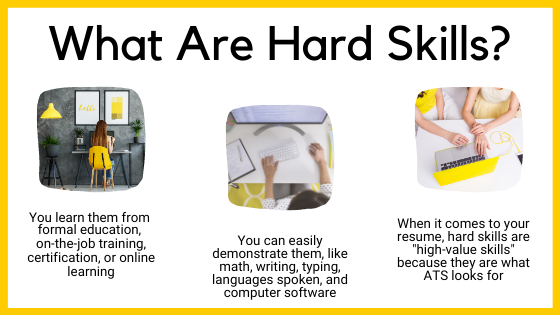
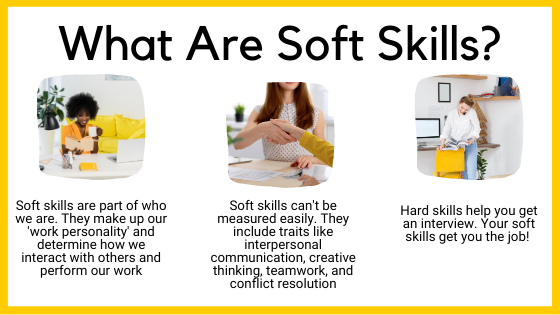
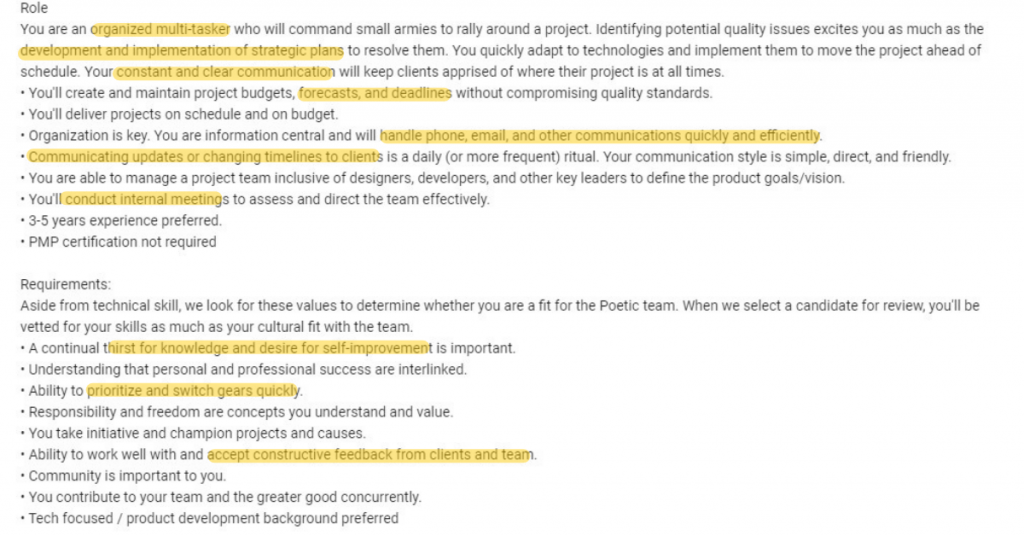
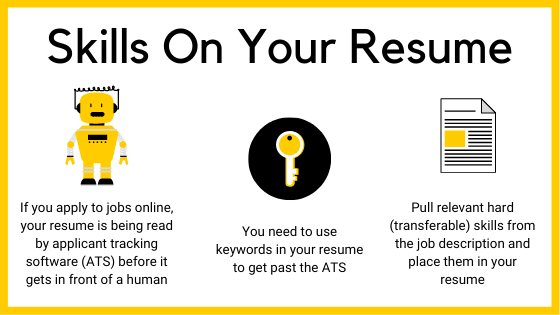
Hi Ashley,
I’m interested in this work but zero knowledge to do it. I’m also computer savvy. My specialty is accounting and social work job in which full time job . Need something to do & keep busy during week ends . I a little tutorial for this job. Tnxs.
Absolutely! Your transferable skills aren’t exclusive to your most recent role.
So true!